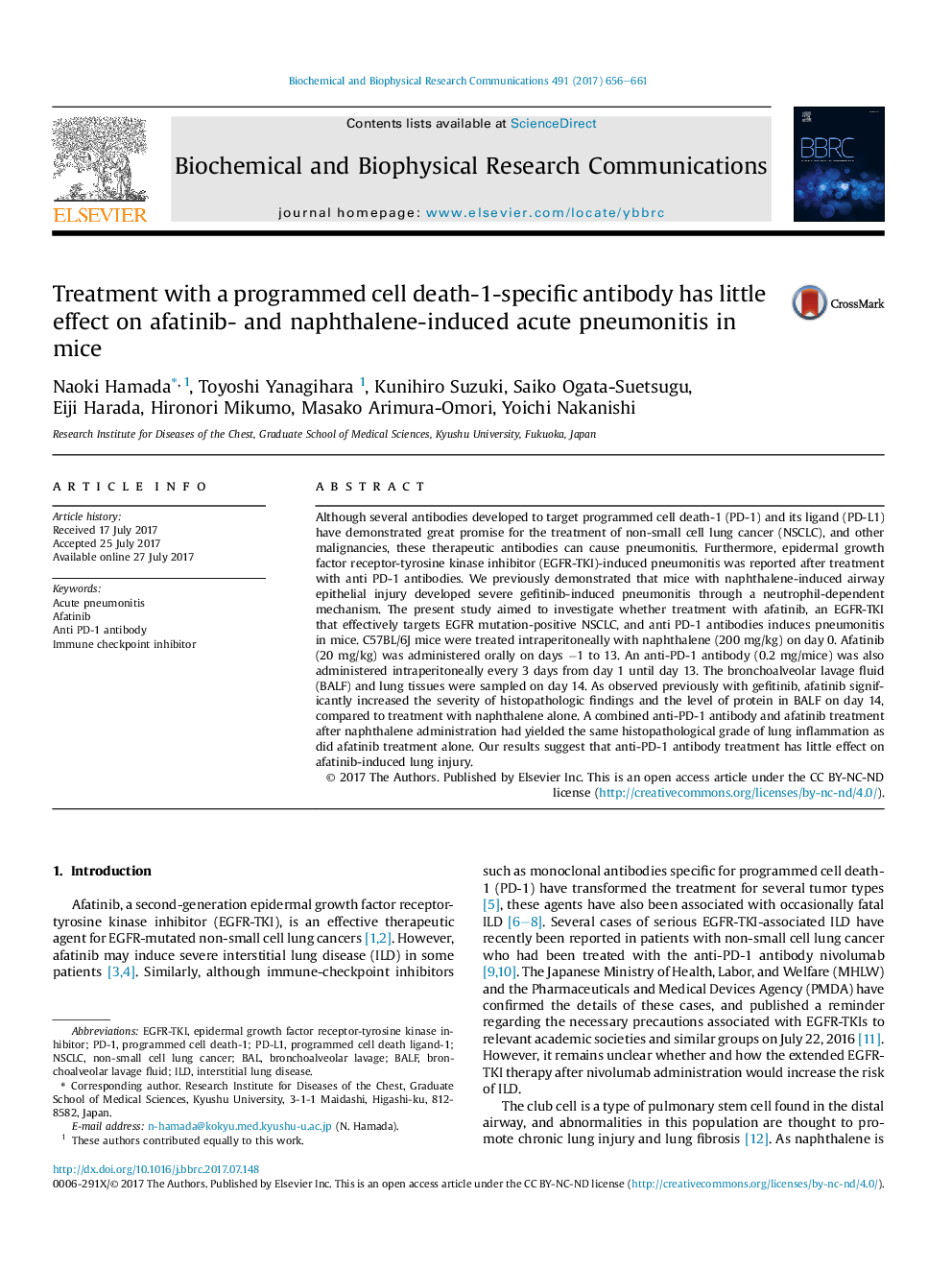| Article ID | Journal | Published Year | Pages | File Type |
|---|---|---|---|---|
| 5504933 | Biochemical and Biophysical Research Communications | 2017 | 6 Pages |
â¢Afatinib is the 2nd generation of EGFR-TKI for lung cancer with EGFR mutations.â¢Treatment of EGFR-TKI with anti PD-1 antibodies can induce pneumonitis in human.â¢Treatment of afatinib with naphthalene induced pneumonitis in mice.â¢Treatment of anti PD-1 antibody had no effect on afatinib-naphthalene-induced pneumonitis.
Although several antibodies developed to target programmed cell death-1 (PD-1) and its ligand (PD-L1) have demonstrated great promise for the treatment of non-small cell lung cancer (NSCLC), and other malignancies, these therapeutic antibodies can cause pneumonitis. Furthermore, epidermal growth factor receptor-tyrosine kinase inhibitor (EGFR-TKI)-induced pneumonitis was reported after treatment with anti PD-1 antibodies. We previously demonstrated that mice with naphthalene-induced airway epithelial injury developed severe gefitinib-induced pneumonitis through a neutrophil-dependent mechanism. The present study aimed to investigate whether treatment with afatinib, an EGFR-TKI that effectively targets EGFR mutation-positive NSCLC, and anti PD-1 antibodies induces pneumonitis in mice. C57BL/6J mice were treated intraperitoneally with naphthalene (200 mg/kg) on day 0. Afatinib (20 mg/kg) was administered orally on days â1 to 13. An anti-PD-1 antibody (0.2 mg/mice) was also administered intraperitoneally every 3 days from day 1 until day 13. The bronchoalveolar lavage fluid (BALF) and lung tissues were sampled on day 14. As observed previously with gefitinib, afatinib significantly increased the severity of histopathologic findings and the level of protein in BALF on day 14, compared to treatment with naphthalene alone. A combined anti-PD-1 antibody and afatinib treatment after naphthalene administration had yielded the same histopathological grade of lung inflammation as did afatinib treatment alone. Our results suggest that anti-PD-1 antibody treatment has little effect on afatinib-induced lung injury.
